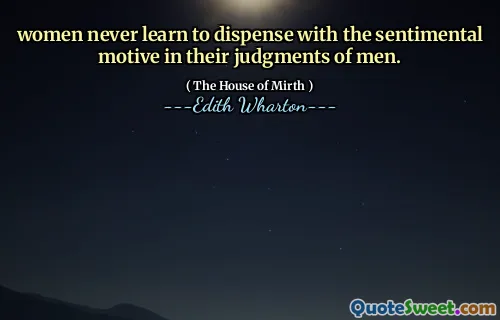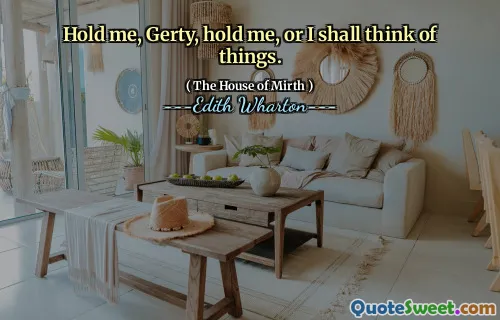
you?-his words overwhelmed him with a realization of the cowardice which had driven him from her at the very moment of attainment. Yes-he had always feared his fate, and he was too honest to disown his cowardice now;
This passage encapsulates a profound moment of self-awareness and vulnerability. The character is struck by the weight of his own cowardice, which prevented him from seizing an important moment with someone he evidently cared about. This realization is not just an external acknowledgment but an internal reckoning; he confronts his fear and accepts it without denial. The theme of fear governing one's actions is relatable and timeless, as many people can identify with moments when hesitation or insecurity have forced them to retreat from opportunities or relationships. The honesty displayed here is particularly compelling—it takes courage in itself to face one's flaws directly and own them without excuse. The quote beautifully captures the human tendency to be driven by internal conflicts and insecurities, yet it also shows a glimmer of integrity and growth in facing those truths. The connection to Edith Wharton's "The House of Mirth" suggests a broader social and emotional context, likely exploring themes of vulnerability amidst societal expectations and personal desires. This moment highlights the complexity of human emotions where fear, self-judgment, and the longing for connection intertwine, making it both a cautionary and empathetic reflection on the human condition.








